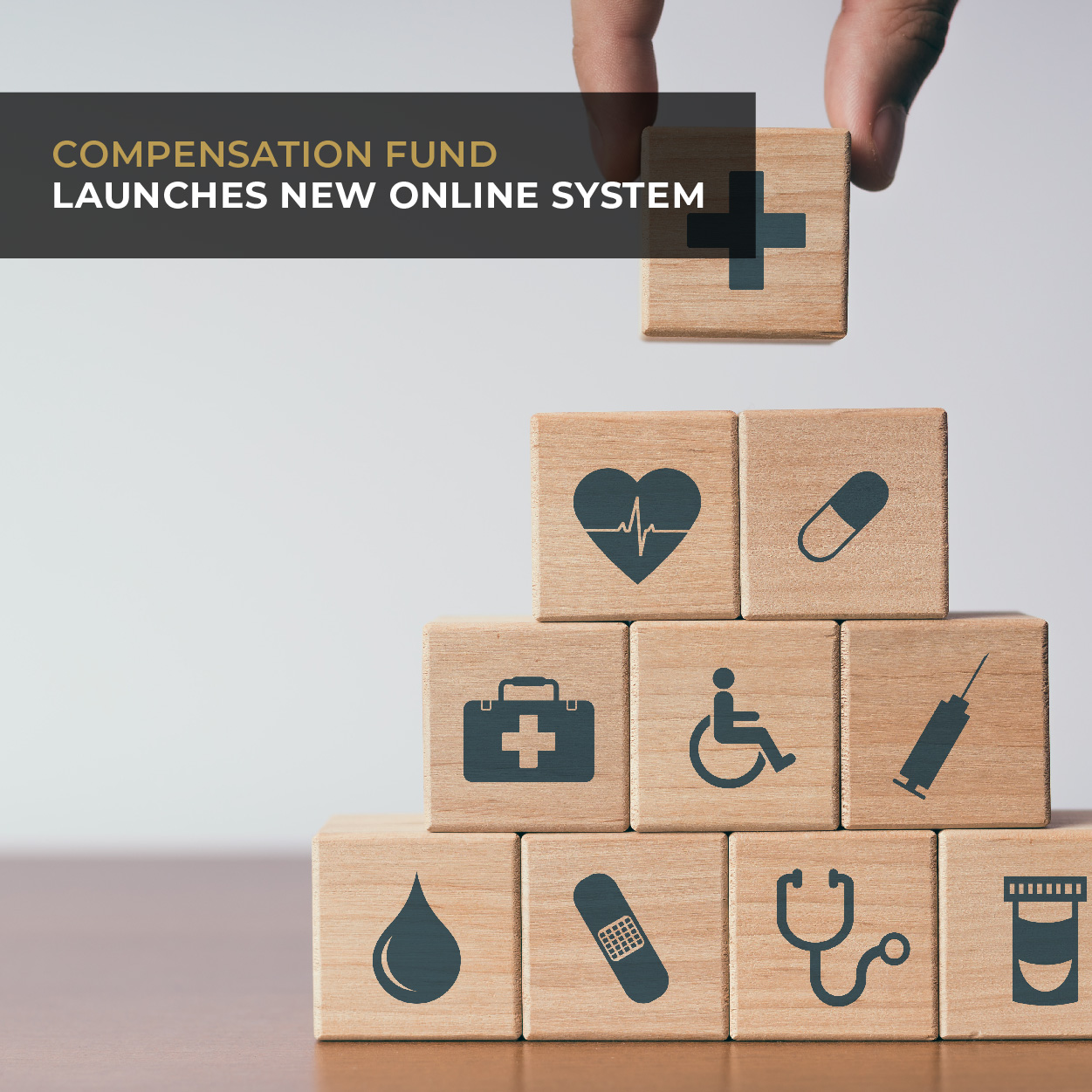COMPENSATION FUND LAUNCHES NEW ONLINE SYSTEMS
The Compensation Fund recently shut down the CF-Filing system and reverted to the previous electronic platform: cfonline.labour.gov.za. which links employers to eCOID – Compensation Made Easy.
The Umehluko system, through which employers and medical service providers submitted claims, has been unavailable since 12th September 2019 and will be replaced on 1 October 2019 by another new online system called, CompEasy.
Vuyo Mafata, the Compensation Fund Commissioner, explained that the new systems were developed to improve employer registration processes and to simplify submission of returns and applications for letters of good standing. The systems aim at electronic registrations, online update of details as well as online validations to reduce manual data capture errors and provide quicker turnaround time.
What is the Compensation Fund and how does it work?
The Compensation Fund is insurance for employers against medical and related expenses arising from employees’ injury, diseases or death in the workplace. The Fund is governed by the Compensation for Occupational Injury and Diseases Act no 130 of 1993 (with amendments).
Registration
Section 80 of the Act determines that every employer carrying on a business in the Republic shall register each business carried on by that employer.
An entrepreneur may have multiple business entities trading in different industry sectors. Each business is obliged to contribute towards the Fund based on its own employees’ earnings and risk factor involved in the type of business.
Let’s consider the following scenario – A family farm has through multiple generations built up an enterprise consisting of farming activities, warehousing and distribution. The farming activities are conducted in a company that employs farm workers and packers. The farming involves operating tractors and other implements.
The warehousing component is registered in a different company. This company employs only a few stock controllers who do not operate any machinery.
The distribution component is registered in a third company. This entails road transport of the produce to various distribution centres.
Even though it flows from the same origin, the three companies each have a different injury risk and staff compliment and therefore a different contribution component.
Records
Section 81 of the Act refers to the employers’ duty to keep accurate records.
A register or record of employees’ earnings together with all prescribed particulars of all employees must be kept. These records must be kept for four years after the date of the last entry in the record. In our technologically advanced era these requirements are met by most payroll software applications. The employer must ensure that these records are accessible for four years after the last entry, by either ensuring a proper back-up of the data is made or PDF copies of reports are saved, or hard copies of the reports are stored in a safe place.
Returns
A return of earnings (W.As.8) must be submitted to the commissioner on an annual basis as prescribed by Section 82 of the Act.
This return discloses to the commissioner the amount of earnings paid to the employees during the prescribed period. The Minister may prescribe by notice in the Gazette, a maximum amount of earnings on which an assessment shall be calculated.
Repercussions
Employers who fail to comply with any of the above provisions shall be guilty of an offence and the Director-General may impose fines upon the employer according to prescribed rates. A letter of good standing, usually required for tender applications, cannot be obtained while in a state of non-compliance.
If an employer has failed to register, and an employee meets with an accident, in addition to any other penalty the employer may be fined an amount not exceeding the full amount of the compensation payable in respect of the accident.
Remedy
Act immediately to register all separate businesses. Submit the required returns and pay all outstanding contributions and penalties.
A letter of good standing may be obtained from the Department of Labour once all returns have been submitted and the account is paid in full.
Although the new platforms aim to simplify the processes, it is still not without challenges. Not having a letter of good standing may result in an incomplete tender application and subsequent loss of income for the company. It still pays to consult with a specialist who understands the processes and can assist employers to get it right the first time.
![2025-logo-[Recovered] Tax Consulting South Africa](https://www.taxconsulting.co.za/wp-content/uploads/2025/01/2025-logo-Recovered.png)


